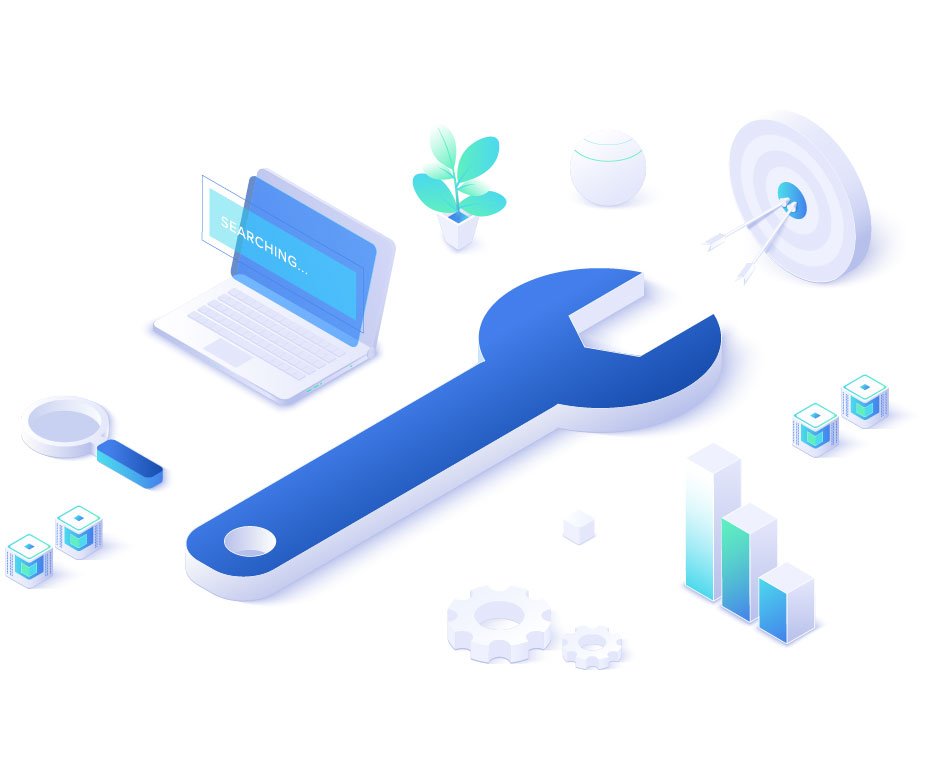Rank smarter, convert faster—powered by Ivy AI
Delivering AI-Powered Solutions for Your Business
As your trusted WordPress SEO Consultant, we deliver end-to-end digital marketing and SEO—now powered by Generative AI, voice agents (inbound/outbound), Social workflow automation, lead capture & follow-ups, smart scheduling, and AI-driven content—to elevate visibility, drive qualified traffic, and grow profits sustainably.
- Human Like Voice - Natural conversations in English, Arabic , Hindi and many more languages
- Faster Conversations - Immediate responses for leads and customers
- Actionable Insights - transcripts , summaries and CRM ready data
- Compliance Ready - Consent, logging GDPR aligned practices
- Digital Marketing -Automated Social Media posting and campaigns

WHAT WE DO - Ivy solutions
AI Solutions Tailored to Your Industry
Why Ivy’s AI
24/7 availability with human-like voice
Faster lead response & higher conversion
Built-in compliance, consent, and logging
Integrations with your CRM, calendars, and socials

Call Scheduling & Reminders
Frictionless bookings that stick.
- Real-time calendar availability (Google/Outlook)
AI proposes slots by timezone, sends confirmations
Multi-channel reminders (SMS/WhatsApp/email), no-show recovery
Best for: Clinics, consultancies, real estate viewings, service calls

AI Blog Writing & SEO Content
Rank-ready content, faster.
- SEO brief (keywords, headings, FAQs/People-Also-Ask)
Drafts long-form posts with internal links & meta tags
AEO-friendly summaries and schema markup suggestions
Best for: Blogs, landing pages, product explainers

AI Inbound Voice Calling (Answering & Support)
Your always-on receptionist that greets callers, answers FAQs, routes calls, and books meetings.
- Greets callers in English/Arabic/Hindi verifies intent, and answers policy/product questions
Creates/updates tickets and CRM records
Transfers to a human or WhatsApp live chat when needed
Captures voicemail, summarizes, and emails transcripts

Social Media Workflow Automation
Plan once, publish everywhere—on autopilot.
- Generates post ideas from your topics or URLs (LinkedIn, Facebook, Instagram)
Auto-creates captions, hashtags, UTMs, and first-comment suggestions
Approval flows, scheduled publishing, and performance reports
Integrates with: Meta, LinkedIn, Google Sheets, Make.com, Zapier

Social Media Workflow Automation
Plan once, publish everywhere—on autopilot.
- Generates post ideas from your topics or URLs (LinkedIn, Facebook, Instagram)
Auto-creates captions, hashtags, UTMs, and first-comment suggestions
Approval flows, scheduled publishing, and performance reports
Integrates with: Meta, LinkedIn, Google Sheets, Make.com, Zapier

AI External Voice Calling (Outbound)
Proactive calling for lead qualification, reminders, re-engagement, and surveys.
Dials lead lists, asks qualifying questions, and updates “hot/warm/cold”
Schedules demos, callbacks, and site visits
Sends post-call summaries to CRM, Slack, or email

Lead Capture & Follow-Up Calls
No more missed opportunities.
- Website widget/QR forms push leads to CRM instantly
AI voice/SMS/WhatsApp follows up within minutes
Drip sequences with smart retry windows and opt-out handling
Best for: Landing pages, ads, event sign-ups, WhatsApp campaigns
WHAT WE Provide- Ivy digital marketing solutions
Unlock the Future of Digital Visibility with Generative AI & AEO As consumer search behavior evolves, traditional SEO is no longer enough. At Ivy Digital, we go beyond keywords—leveraging cutting-edge Generative AI and Answer Engine Optimization (AEO) strategies to position your business at the forefront of AI-driven search experiences. 🔍 What is Generative AI in Digital Marketing? Generative AI refers to artificial intelligence models (like ChatGPT, Gemini, Claude) that generate human-like content. These models are now powering next-gen search tools, voice assistants, and AI overviews on platforms like Google and Bing. We use Generative AI to: Automatically create high-quality, SEO-optimized content Build context-aware FAQs and knowledge bases Support dynamic chatbot and voice search readiness Enhance user experience with smart, personalized content 💡 Why Answer Engine Optimization (AEO) Matters AEO focuses on optimizing your website to appear directly in AI-powered responses—not just the traditional blue links. Search engines and AI models now favor clear, structured answers to user queries. Our AEO approach ensures your business is the top answer across Google AI Overviews, SGE (Search Generative Experience), voice search, and smart assistants. ✅ Our Services Include: 🔹 AEO-Ready Website Optimization 🔹 Generative AI Content Creation 🔹 AI FAQ & Knowledge Base Development 🔹 Voice & Chat Assistant Optimization 🔹 Competitive AEO Audit 🚀 Benefits of Generative AI & AEO Featured visibility in AI and voice-based searches Increased traffic from organic, high-intent queries Enhanced brand authority through direct answers Reduced bounce rates with intelligent content Future-proof SEO strategy for AI-driven search 🧠 Who Needs AEO & AI Content? Businesses targeting tech-savvy or mobile-first users Brands looking to stay ahead of SEO trends eCommerce sites wanting smart product FAQs Service-based firms seeking more leads via search 🎯 Why Choose Ivy Digital? As your trusted WordPress SEO Consultant, Ivy Digital combines technical expertise, creative strategy, and AI innovation to future-proof your brand’s online presence. Our UAE-based team understands the unique digital landscape and delivers results tailored to your industry.
A reliable website hosting service is the foundation of a strong online presence. At Ivy Digitals, we offer secure and scalable hosting solutions to ensure your website is always up and running. Our Hosting Services Include: Shared Hosting: Affordable hosting for small businesses. VPS Hosting: Enhanced performance and control for growing businesses. Dedicated Hosting: High-performance hosting for large enterprises. Cloud Hosting: Scalable and reliable hosting for businesses of all sizes. Why Choose Ivy Digitals for Hosting? 99.9% uptime guarantee. 24/7 customer support. Advanced security features.
SEO Grow Your Business with Agency on the search engine’s results page, This means that when your target customers search for products and services that your industry offers to find your website. At Ivy Digitals, we understand the importance of ranking high on search engines. Our SEO services are tailored to improve your website’s visibility, drive organic traffic, and boost conversions. Our SEO Services Include: On-Page SEO: Optimizing meta tags, headers, content, URLs, and internal linking. Off-Page SEO: Building high-quality backlinks and increasing domain authority. Technical SEO: Ensuring your website is fast, mobile-friendly, and easy to crawl. Local SEO: Optimizing for local searches with Google My Business and local citations. Content SEO: Creating keyword-rich, engaging content that aligns with user intent. Why Choose Ivy Digitals for SEO? Proven track record of improving rankings. Customized strategies for your business goals. Transparent reporting and performance tracking.
Drive immediate results with our PPC advertising services. At Ivy Digitals, we create and manage targeted ad campaigns to maximize your ROI. Our PPC Services Include: Google Ads: Search, display, and shopping campaigns. Social Media Ads: Facebook, Instagram, LinkedIn, and Twitter ads. Keyword Research: Identifying high-performing keywords. Ad Creation: Crafting compelling ad copy and visuals. Landing Page Optimization: Designing high-converting landing pages. Why Choose Ivy Digitals for PPC? Expertise in managing large-scale campaigns. Focus on cost-effective strategies. Transparent reporting and optimization.
At Ivy Digitals, we believe in measuring what matters. Our performance tracking services help you monitor key metrics and optimize your campaigns for maximum ROI Our Performance Tracking Services Include: Monitoring traffic, engagement, and conversions. Analyzing campaign performance across channels. Providing detailed reports and recommendations. Why Choose Ivy Digitals for Performance Tracking? Transparent and accurate reporting. Focus on continuous improvement. Aligning metrics with business goals.
Email marketing remains one of the most effective digital marketing strategies for nurturing leads, engaging customers, and driving conversions. At Ivy Digitals, we create personalized and data-driven email marketing campaigns to help you connect with your audience and achieve your business goals. Our Email Marketing Services Include: Campaign Strategy: Developing tailored email marketing strategies based on your target audience and business objectives. List Building: Helping you grow your email subscriber list through lead magnets, opt-in forms, and targeted campaigns. Email Design: Creating visually appealing and mobile-responsive email templates that align with your brand identity. Automation: Setting up automated email sequences for welcome emails, abandoned cart reminders, and re-engagement campaigns. A/B Testing: Testing subject lines, content, and CTAs to optimize open rates and click-through rates. Analytics & Reporting: Tracking key metrics like open rates, click-through rates, and conversions to measure campaign success. Why Choose Ivy Digitals for Email Marketing? Expertise in crafting engaging and personalized email content. Use of advanced tools like Mailchimp, HubSpot, and Klaviyo. Focus on delivering measurable results and high ROI. Integration with Other Services Email marketing works seamlessly with other digital marketing services offered by Ivy Digitals: SEO: Drive traffic to your website and capture leads through email sign-ups. SMM: Promote your email campaigns on social media to grow your subscriber list. Performance Tracking: Monitor email campaign performance alongside other marketing efforts. PPC: Retarget website visitors with personalized email offers.
Data is the backbone of digital marketing. At Ivy Digitals, we help you set up and leverage Google Analytics to track and optimize your website’s performance. Our Google Analytics Services Include: Account setup and tracking code installation. Goal and conversion tracking. Custom dashboards and reports. Integration with other tools like Google Ads and Search Console. Why Choose Ivy Digitals for Google Analytics? Expertise in data analysis and interpretation. Actionable insights to improve performance. Regular reporting and optimization.
Our SMM services are designed to help you connect with your audience, build brand awareness, and drive engagement on platforms like Facebook, Instagram, LinkedIn, and Twitter. Our SMM Services Include: Content Creation: Crafting visually appealing posts, videos, and stories. Paid Advertising: Running targeted ad campaigns to reach your ideal audience. Community Management: Engaging with followers and building relationships. Analytics & Reporting: Tracking performance metrics to optimize campaigns. Why Choose Ivy Digitals for SMM? Creative and data-driven strategies. Expertise in managing multiple platforms. Focus on ROI-driven results.
Your website is the face of your brand online. At Ivy Digitals, we create stunning, user-friendly websites that drive conversions and deliver exceptional user experiences. Our Design & Development Services Include: UI/UX Design: Intuitive and visually appealing designs. Responsive Design: Websites that look great on all devices. Custom Development: Tailored solutions to meet your unique needs. E-Commerce Development: Building online stores with seamless functionality. CMS Integration: Easy-to-use content management systems like WordPress. Why Choose Ivy Digitals for Design & Development? Focus on user-centric design. Expertise in the latest web technologies. Timely delivery and ongoing support.
Blog Post
Latest News & Articles
Our campaigns get your business in front of the right people at the right time to increase organic traffic and boost engagement.
🚀 Supercharge Your Customer Experience with AI + HubSpot/Zoho Integration! 🤖✨ At Ivy Digital, we don’t just follow digital trends—we lead them. That’s why we’re harnessing the power of AI Agents and seamlessly integrating them with your favorite CRMs like HubSpot and Zoho. 💼🔗 Imagine this: ✅ Instantly qualifying leads with AI-powered chat & voice agents ✅ 24/7 bilingual customer service across all platforms ✅ Automating follow-ups, workflows & nurture sequences ✅ Boosting sales conversions through smart, human-like interactions ✅ Streamlining support with AI-led helpdesks & ticket triaging Whether you’re focusing on marketing, sales, or customer success, Ivy Digital turns your CRM into a true growth engine. And yes, we speak your tech stack—HubSpot, Zoho, and beyond! 💡📈 💬 Ready to optimize your funnel and elevate customer engagement? Here’s where Ivy Digital steps in: Ivy Digital fuses smart strategy with cutting-edge AI to deliver everything you need under one roof: • Digital Marketing & CRO – campaigns engineered for measurable ROI. • SEO that ranks (and wins AI Overviews) – technical, on-page & multilingual. • Social Media Mastery – scroll-stopping content + paid-ad firepower. • AI Chat & Voice Agents (Inbound / Outbound) – 24/7 bilingual support, sales & counselling. • Automated Content Engine – AI-generated posts, blogs & visuals on autopilot. • AI-powered automated helpdesk and many more? 📧 Email us at AI@ivydigitals.com 📞 Call us at +971585243521 to request your free demo today! #AIAgents #CRMIntegration #HubSpot #ZohoCRM #DigitalTransformation #B2BGrowth #MarketingAutomation #CustomerExperience #IVYDigitals #ConversationalAI #SmartMarketing #AIChatbots #DigitalMarketingExperts #LeadAutomation #SocialMediaMarketing #DubaiTech #UAEStartups #MarketingThatWorks #SEOExperts
📈 Predictive Marketing During Ramadan: How AI & Machine Learning Forecast Consumer Demand 🌙 As Ramadan approaches, consumer behavior shifts dramatically — from shopping times to product choices. This is where predictive marketing becomes a game-changer. 💡 Using machine learning, brands can analyze historical data, search trends, social signals, and even weather patterns to anticipate demand. That means: ✅ Stocking the right products ✅ Launching timely, personalized campaigns ✅ Maximizing ROI with precision ✅ Creating meaningful customer experiences With the right ML models, your brand stays 10 steps ahead 🌟 — no guesswork, just data-driven insights that deliver real Ramadan results. Whether you’re scaling eCommerce, boosting app engagement, or refining your digital campaigns, predictive marketing powered by AI helps you plan smarter and sell better — especially during the holy month. Here’s where Ivy Digital steps in: Ivy Digital fuses smart strategy with cutting-edge AI to deliver everything you need under one roof: • Digital Marketing & CRO – campaigns engineered for measurable ROI. • SEO that ranks (and wins AI Overviews) – technical, on-page & multilingual. • Social Media Mastery – scroll-stopping content + paid-ad firepower. • AI Chat & Voice Agents (Inbound / Outbound) – 24/7 bilingual support, sales & counselling. • Automated Content Engine – AI-generated posts, blogs & visuals on autopilot. • AI-powered automated helpdesk and many more? 📩 Email us at AI@ivydigitals.com 📞 Call us at +971585243521 for a free demo #PredictiveMarketing #Ramadan2024 #MachineLearning #AIinMarketing #DigitalStrategy #EcommerceRamadan #MarketingROI #RamadanCampaigns #IvyDigital #AIMarketing #RamadanTrends #SmartMarketing #AISEO #SocialMediaMarketing #CRO #MultilingualSEO #DataDrivenMarketing
📣 Voice or Chat AI? Picking the Right Digital Conversation Channel for the UAE 🇦🇪 When it comes to connecting with your audience in the UAE, choosing between AI Voice and Chat isn’t just a tech decision – it’s a strategic move for better engagement, faster support, and higher conversions. 🤖👇 🎙️ Voice AI is ideal for: • Personalized, human-like interactions in Arabic or English. • Customer service, appointment booking & outbound calls. • Reaching on-the-go users looking for hands-free support. 💬 Chat AI shines when: • Users prefer quick, text-based answers (especially on WhatsApp!). • Businesses want to automate sales, onboarding & FAQs. • Multilingual communication is key—yes, Arabic included! 💡 The key? Local insight + cultural sensitivity. UAE audiences expect tech-savvy solutions that don’t sacrifice trust or personalization. Here’s where Ivy Digital steps in: Ivy Digital fuses smart strategy with cutting-edge AI to deliver everything you need under one roof: • Digital Marketing & CRO – campaigns engineered for measurable ROI. • SEO that ranks (and wins AI Overviews) – technical, on-page & multilingual. • Social Media Mastery – scroll-stopping content + paid-ad firepower. • AI Chat & Voice Agents (Inbound / Outbound) – 24/7 bilingual support, sales & counselling. • Automated Content Engine – AI-generated posts, blogs & visuals on autopilot. • AI-powered automated helpdesk and many more? 📧 Email us at AI@ivydigitals.com or ☎️ Call us at +971585243521 for a live demo! #VoiceAI #ChatbotMarketing #UAEBusinesses #ArtificialIntelligence #DigitalMarketingUAE #ArabicAI #SmartAutomation #IvyDigital #AIAssistants #CustomerSupportAI #MultilingualAI #UAEInnovation #ConversationalAI #SocialMediaUAE
